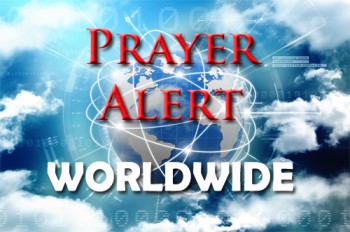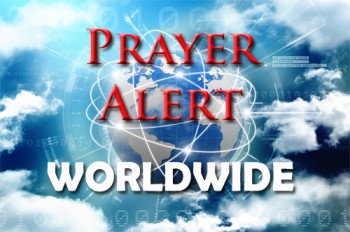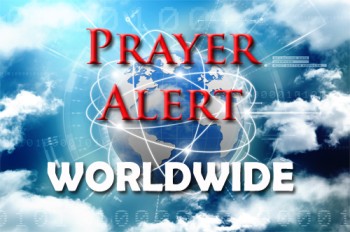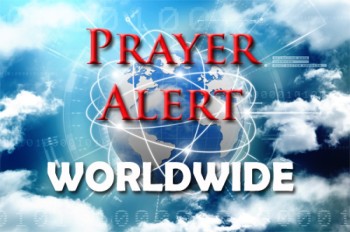Displaying items by tag: Sudan
Sudan: Hemedti’s successful African tour despite RSF atrocities
Paramilitary leader Mohamad Hamdan Dagalo, known as ‘Hemedti’, recently visited the Rwandan genocide memorial in Kigali, sparking controversy; his paramilitary Rapid Support Forces (RSF) has been accused of similar atrocities in Sudan's civil war. His tour in January to leaders in six African countries raised concerns because despite allegations of widespread atrocities by RSF fighters, he was received like a head of state. In West Darfur, a UN report has revealed that RSF fighters and allied militias have killed up to 15,000 non-Arabs from the Masalit tribe, with thirteen mass graves identified since the war began. Approximately 550,000 Masalit refugees have been displaced to camps in Chad, and their land has been forcibly taken over by new settlers. On 1 January Hemedti signed an agreement with a civilian coalition called Taqaddum, supposedly aiming to end hostilities and provide security to civilians. However, so far the RSF has failed to govern or demonstrate a genuine commitment to govern.
Sudan: UK describes ‘ethnic cleansing’ in Darfur
Recent analysis of satellite and social media data reveals that at least 68 villages in Darfur have been set on fire by Sudanese armed militias since the civil war began in April. The UK minister for Africa, Andrew Mitchell, said this bore ‘all the hallmarks of ethnic cleansing’ - the first time the government has used the term to describe what is happening in Sudan. General Abdel Fattah al-Burhan, who leads the Sudanese Armed Forces (SAF), said that he would cooperate with the International Criminal Court (ICC) to bring those guilty to justice. Much of the ethnic violence is blamed on militias which are part of - or affiliated to - the Rapid Support Forces (RSF), the paramilitary group fighting the SAF for control of the country. The RSF has repeatedly denied any involvement in the violence in the region and has called for an independent international investigation. The analysis has been carried out by the Centre for Information Resilience (CIR), which uses Nasa heat-recognition technology and satellite images to identify fires and matches them with images on social media.
Sudan: 104 higher education institutions destroyed
A total of 104 government and private higher education institutions in Sudan, as well as research centres and the National Fund for Student Welfare have been damaged or destroyed since April, when the Sudanese armed forces and the paramilitary Rapid Support Forces became embroiled in a war. All institutions in Khartoum state, where the capital is also located, as well as several in other states, have been affected. The scale of destruction in Sudan’s higher education sector was posted on Facebook on 27 August by the country’s ministry of higher education and scientific research. The ministry’s own offices were damaged in a fire that affected several floors. After several years of disruption because of political volatility and the pandemic, UNICEF has launched the Learning Passport, an online and offline e-learning platform, almost free of charge, to enable schoolchildren to take part in flexible learning in different parts of Sudan.
Sudan: Sinking deeper into civil war
The International Criminal Court has opened another war crimes probe after three months of war between feuding generals. 87 bodies were buried in a mass grave by the Rapid Support Forces (RSF) paramilitary group prompting a UN warning of possible new massacres in Darfur. The ICC has been investigating crimes in Sudan's Darfur region since 2005. The UN Security Council charged former leader Omar al-Bashir with genocide and crimes against humanity - murder, rape and torture. Allegations of similar atrocities have mounted during recent fighting. UN officials are calling for the warring sides to face accountability. About 3,000 people have been killed and three million displaced since violence erupted between Sudan’s army chief Abdel Fattah al-Burhan and his former deputy Mohamed Hamdan Daglos. The UN warns history could repeat itself - the people of Darfur have lived with uncertainty, pain and the scars of conflict for almost two decades.
Sudan: Families trapped as Darfur burns
Over 90,000 people have crossed into Chad from Darfur as Sudan became gripped by war when fighting began between Sudan’s army and the paramilitary Rapid Support Forces on April 15th. Amid the chaos, fighting also reignited in the west of the country that is still haunted by 20 years of conflict between Arab militias and non-Arab groups - including the Arab Rizeigat tribe and the non-Arab Masalit - fuelled by competition for dwindling resources. At least 500 people died across Darfur in the first weeks of fighting, according to Sudan’s health ministry, while over 250,000 people in West Darfur were displaced. The figures are likely to have increased since they were reported before a total communication blackout in el-Geneina on 19 May. el-Geneina suffered two waves of violence at the end of April and in mid-May. They both started when Arab militias stormed it, exploiting the army’s non-interference.
Sudan: fraught situation for Christians
It is a fraught situation for Christians trapped in Khartoum since Sudan’s civil war erupted on 15 April between the Sudanese army and Rapid Support Forces (RSF) militias. Pastor Desta said living in his area was becoming almost impossible. Fire burned down his church and the local market. ‘Every two days we walk to a distant district to get water and provisions. Most of our neighbours have left. The other day two friends and I took the church car to get water and provisions, then RSF members searched and questioned us. It is getting awful. We are waiting for a couple of days. If it gets worse, we will leave. Many are saying that intense fighting means escape has become too dangerous now that RSF members surround those who remain. RSF uses nearby homes for shelter; they are targeted by the army. Indirectly, we are under siege. Nowhere is safe.’
Sudan: prayer needs
Sudanese passports are locked inside European embassies. Spain's foreign ministry urged people to obtain travel documents from the Sudanese authorities. Mohamed was waiting for his visa for a Spanish holiday when war erupted. He phoned the Spanish embassy to retrieve his passport. The receptionist asked, ‘Are you Sudanese or Spanish?' He said he was Sudanese, she immediately hung up. Mr Badawi works for a French company. His passport was at the French embassy and they refused to return it. There are many more trapped. 15.8 million people already needed humanitarian assistance before the conflict. Now the situation is dire. Water, food, fuel, and medical supplies are scarce. The UN and partners are working to reboot the humanitarian response. Also the toll on children and young people’s mental health is profound. Additionally, the cost of transportation out of the worst-hit areas has risen exponentially, leaving the most vulnerable unable to move to safer areas.
Flight from danger
On 27 April, 536 British nationals were evacuated from Sudan during a truce, but foreign secretary James Cleverly warned there is no guarantee flights will continue if the fragile truce ends at midnight. Diplomatic efforts are ongoing to extend the ceasefire, Sudan's army is willing, but the Rapid Support Forces (RSF) have not responded. Despite the ceasefire, fighting continues in parts of Sudan. The Foreign Office warned that an end to the ceasefire could result in a humanitarian catastrophe in Sudan, saying, ‘It is essential that a ceasefire is maintained and a political process is secured. If not, the humanitarian consequences will be incalculable. The UK will continue to work tirelessly to help bring an end to the violence and provide humanitarian relief’. James Cleverly cannot guarantee evacuations. Only British passport holders and their immediate families with existing UK entry clearance are eligible, and even that might be impossible if the truce ends.
Missionaries stay in Sudan
‘We are concerned by the ongoing conflict in Sudan and the effect this is having on the population’, commented Stephanie Draper, CEO of Bond, which represents 400 global bodies fighting poverty. ‘Some humanitarian workers are sheltering and will attempt to resume their work when it is safe to do so. We urge the UK government to deploy all the humanitarian and diplomatic levers at their disposal to support those in need when it is safe to do so.’ Caroline Duffield, a former international radio correspondent in Africa, said, ‘The decision on whether to stay or go is a matter for prayer and also for hope. It's just looking very, very difficult. People we've been in contact with ask us to pray that Christians remain hopeful and not give up on the possibility of a peaceful future for Sudan.’ Pray for God to give the Christians in Sudan strength, endurance and protection.
Sudan: hospitals horror
Sudan’s healthcare system is paralysed. 39 out of 59 hospitals are closed. Those still working are running out of blood, medical equipment, and supplies. Doctor Abaro said closed hospitals must remain closed because medical supplies have run out and oxygen stations have been destroyed. It’s not safe to go into the streets, so medical staff and medical supplies can’t reach hospitals. Electricity, water and food are running low, and there are restrictions on ambulance movements. The situation is difficult. ‘The worst thing was seeing injured men and chronic patients struggling to survive,’ said Doctor Mustafa. ‘They were already vulnerable, and we felt paralysed trying to help them.’ A former foreign minister sheltering in Khartoum said, ‘We’ve had no electricity for 24 hours. We’ve had no water for six days, medical teams are targeted, and there are rotting bodies of youths in the streets’.









